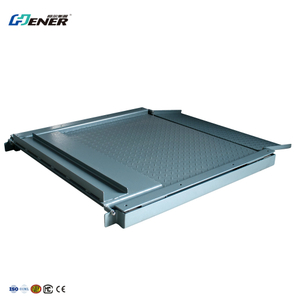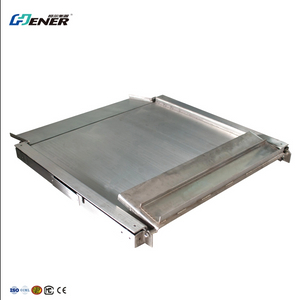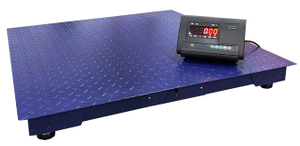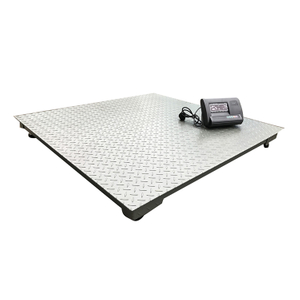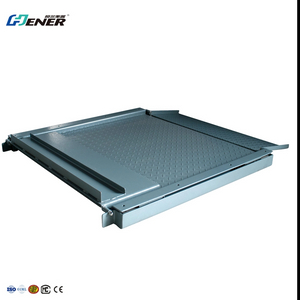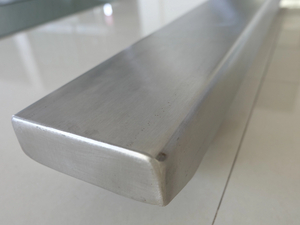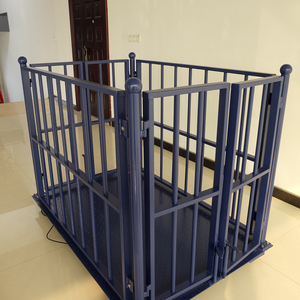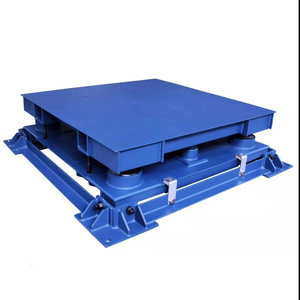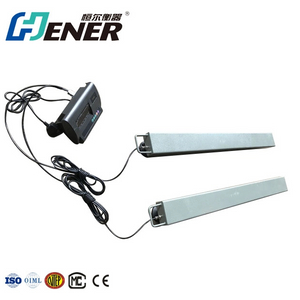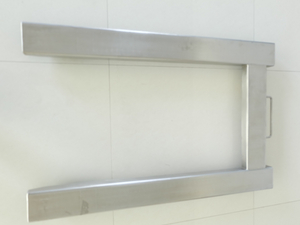
Weighing scales are critical tools in the recycling and waste management industry, serving as essential instruments for ensuring accuracy, efficiency, and compliance throughout various stages of the waste management process. From collection and sorting to processing and disposal, weighing scales play a pivotal role in maintaining operational integrity and optimizing waste management practices. This comprehensive exploration delves into the diverse applications of weighing scales in recycling and waste management and highlights their significance in maintaining environmental sustainability and meeting regulatory standards.
Ensuring Accurate Waste Measurement
Collection and Transportation
In the recycling and waste management industry, accurate measurement of waste is crucial for efficient collection and transportation. Weighing scales are used to measure the weight of waste materials collected from residential, commercial, and industrial sources. This data is essential for optimizing collection routes, managing fleet loads, and ensuring that transportation vehicles are loaded within legal weight limits.
Portable truck scales and weighbridges are commonly used to weigh collection vehicles before and after loading, providing accurate data on the weight of the waste collected. This information helps waste management companies optimize their operations, reduce fuel consumption, and minimize the risk of fines or penalties for overloading vehicles.
Load Optimization
Weighing scales play a vital role in load optimization, ensuring that collection vehicles are loaded to their maximum capacity without exceeding weight limits. This not only maximizes the efficiency of each trip but also reduces the number of trips required, thereby saving fuel and reducing overall transportation costs. Load optimization also contributes to reducing the carbon footprint of waste management operations, supporting sustainability initiatives.
In addition to optimizing vehicle loads, weighing scales are used to balance loads evenly, preventing issues such as shifting cargo or uneven weight distribution that could affect vehicle stability and safety. This is particularly important for long-haul transportation, where maintaining vehicle balance is critical for safe operation.
Enhancing Sorting and Processing
Material Sorting
In recycling facilities, weighing scales are essential for sorting and categorizing waste materials. Accurate weight measurements help identify the quantity and type of materials being processed, facilitating efficient sorting and separation. For example, in a recycling facility, scales are used to measure the weight of different types of plastics, metals, paper, and glass. This data helps optimize the sorting process, ensuring that materials are accurately categorized and directed to the appropriate processing lines.
Advanced automated sorting systems often incorporate weighing scales to enhance efficiency and accuracy. These systems can automatically measure and sort materials based on weight, reducing the need for manual intervention and minimizing errors. By ensuring precise sorting, weighing scales help improve the quality and value of recycled materials.
Processing and Treatment
Weighing scales play a critical role in the processing and treatment of waste materials. In recycling plants, scales are used to measure the weight of materials at various stages of processing, from shredding and crushing to melting and reformation. Accurate weight measurements ensure that the right amount of material is processed, optimizing efficiency and reducing waste.
For example, in metal recycling, scales are used to weigh scrap metal before it is melted down and reformed into new products. Accurate weight measurements help control the amount of metal being processed, ensuring that the final product meets quality standards. In plastic recycling, scales are used to measure the weight of plastic pellets produced from recycled materials, ensuring consistency and quality in the final product.
Supporting Waste Reduction and Sustainability
Waste Audits and Analysis
Weighing scales are essential tools for conducting waste audits and analysis. Waste audits involve measuring and analyzing the composition and quantity of waste generated by different sources. This data provides valuable insights into waste generation patterns, helping organizations identify opportunities for waste reduction and resource optimization.
Accurate weight measurements are crucial for conducting comprehensive waste audits, providing detailed data on the types and quantities of waste generated. This information helps organizations develop and implement effective waste reduction strategies, supporting sustainability initiatives and reducing environmental impact.
Recycling and Reuse
Weighing scales play a vital role in recycling and reuse initiatives, ensuring accurate measurement of materials destined for recycling or reuse. By measuring the weight of recyclable materials, scales help optimize recycling operations and improve the efficiency of material recovery processes.
For example, in the recycling of construction and demolition waste, scales are used to measure the weight of concrete, wood, and metal debris. Accurate weight measurements ensure that these materials are properly sorted and processed, maximizing their recovery and reuse. In the textile recycling industry, scales are used to measure the weight of used clothing and textiles, facilitating efficient sorting and recycling processes.
Ensuring Regulatory Compliance
Environmental Regulations
Compliance with environmental regulations is a critical aspect of waste management operations. Regulatory authorities impose strict standards on waste disposal and recycling practices to protect the environment and public health. Weighing scales help waste management companies comply with these regulations by providing accurate weight measurements of waste materials.
Environmental regulations often require waste management companies to document the weight and type of waste materials collected, processed, and disposed of. Accurate weight data is essential for maintaining compliance with these requirements, ensuring that waste management practices meet regulatory standards and avoiding potential fines or penalties.
Reporting and Documentation
Weighing scales play a critical role in reporting and documentation within the recycling and waste management industry. Accurate weight measurements are essential for maintaining detailed records of waste materials, recycling rates, and disposal practices. This data supports comprehensive reporting and documentation, helping companies demonstrate compliance with regulatory requirements and sustainability goals.
For example, waste management companies are often required to submit reports to regulatory authorities detailing the weight and type of waste materials collected and processed. Accurate weight data ensures that these reports are precise and reliable, supporting transparency and accountability in waste management practices.
Optimizing Cost Management
Cost Efficiency
Accurate weight measurement is essential for cost efficiency in the recycling and waste management industry. Weighing systems help optimize the use of resources, reducing overuse and minimizing waste. This leads to cost savings in raw material procurement and processing operations.
By providing precise weight data, weighing scales help waste management companies optimize transportation and disposal costs. Accurate weight measurements ensure that vehicles are loaded to their maximum capacity without exceeding weight limits, reducing transportation costs and improving efficiency.
Budgeting and Forecasting
Weighing scales provide valuable data that supports budgeting and forecasting in the recycling and waste management industry. Accurate weight measurements help companies track material usage, waste generation, and recycling rates, providing insights that inform financial planning and decision-making.
This data supports better resource allocation, helping companies allocate funds more effectively and plan for future growth. By providing real-time data on weight and material flows, weighing scales help waste management companies identify cost-saving opportunities and optimize their operations.
Enhancing Safety and Compliance
Preventing Overloading
Ensuring the safety of workers and equipment is a top priority in the recycling and waste management industry. Weighing scales help prevent overloading of collection and transportation vehicles, reducing the risk of accidents and equipment damage.
Accurate weight measurements ensure that vehicles operate within safe weight limits, maintaining stability and safety during transportation. This is particularly important for long-haul shipments, where maintaining vehicle balance is critical for safe operation.
Hazardous Waste Management
In the management of hazardous waste, weighing scales play a critical role in ensuring accurate measurement and safe handling of hazardous materials. Hazardous waste includes materials that pose a risk to human health and the environment, such as chemicals, solvents, and toxic substances.
Accurate weight measurements are essential for managing hazardous waste, ensuring that the correct quantities are handled, stored, and disposed of safely. Weighing scales help prevent spills, leaks, and accidental releases of hazardous materials, reducing the risk of environmental contamination and health hazards.
English
العربية
Français
Русский
Español
Português
Deutsch
italiano
Nederlands
Tiếng Việt
ไทย
Polski
Türkçe
ភាសាខ្មែរ
Bahasa Melayu
Filipino
Bahasa Indonesia
Română
Čeština
Монгол
қазақ
Српски
हिन्दी
Slovenčina
Slovenščina
Norsk
Svenska
Ελληνικά
Suomi
Հայերեն
Latine
Dansk
Shqip
Hrvatski
Afrikaans
Gaeilge
Eesti keel
Oʻzbekcha
latviešu
Azərbaycan dili
Беларуская мова
Български
ქართული
guarani
Кыргызча
Lietuvių
Македонски
Malti
Soomaali
Тоҷикӣ
Türkmençe




